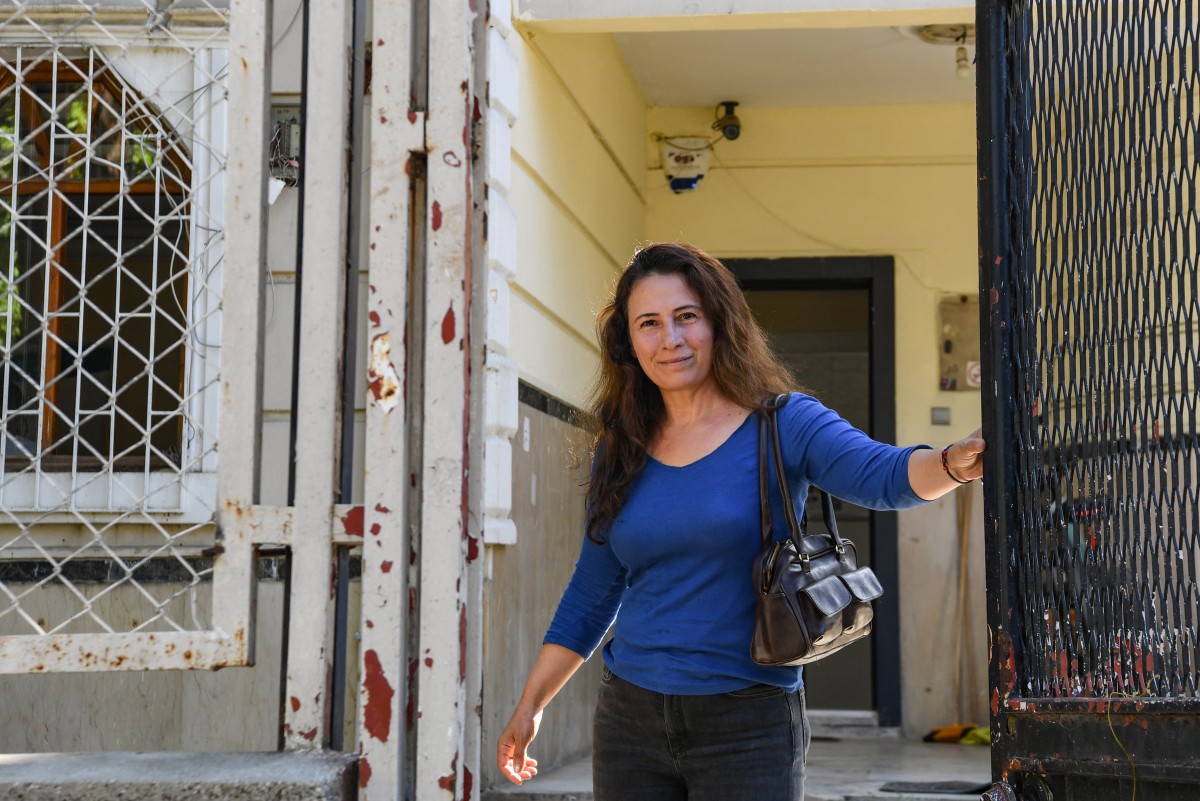Diyarbakir, Turkey – “When you try and explain peace to people, there is a very serious lack of trust,” said Yuksel Genc, a former fighter with the PKK, which recently ended its decades-long armed struggle against the Turkish state.
“They think the government does not trust them.”
For years, she was a fighter with the Kurdish rebel group, which on May 12 said it would disarm and disband, ending a four-decade armed struggle against the Turkish state that cost more than 40,000 lives.
The historic move came in response to an appeal by its jailed founder Abdullah Ocalan, arrested in 1999 and serving life in solitary ever since on a prison island near Istanbul.
Genc herself joined the militants in 1995 when she was a 20-year-old university student in Istanbul.
“At that time, many Kurdish villages were being burnt down, and we were constantly hearing about villages being evacuated, people being displaced and unsolved murders,” she said.
She described it as “a time of terrible repression”.
“You felt trapped, as if there was no other way than to join the guerrillas,” she said.
After arrest, Ocalan urged calm
Four years later, after years in exile, Ocalan was snatched by Turkish commandos in a Hollywood-style operation in Nairobi.
“Ocalan’s capture provoked a deep sense of rage among the guerrillas, who feared it would mean the Kurdish cause would be destroyed,” she said.
But it was Ocalan himself who called for calm and insisted it was time for the Kurdish question to be resolved democratically. He urged his followers to go to Turkey, hand over their weapons and seek dialogue.
“He thought our arrival would symbolise (the PKK’s) goodwill, and persuade the state to negotiate.”
Genc was part of the first so-called “groups for peace and a democratic solution” — a group of three women and five men who arrived in Turkey on October 1, 1999 on what they knew would be a “sacrificial” mission.
After a long march through the mountains, they arrived in the southeastern village of Semdinli under the watchful eye of “thousands” of Turkish soldiers huddled behind rocks.
Handing over their weapons, they were transferred to the city of Van 200 kilometres (140 miles) to the north where they were arrested.
Genc spent the next nearly six years behind bars.
“For us, these peace groups were a mission,” she said. “The solution had to come through dialogue.”
‘Peace work has a cost’
After getting out, she continued to struggle for Kurdish rights, swapping her gun for a pen to become a journalist and researcher for the Sosyo Politik think tank.
Even so, her writing earned her another three-and-a-half years behind bars.
“Working for peace in Turkey has a cost,” she said with a shrug.
When Recep Tayyip Erdogan became prime minister in 2003, there was hope for a new breakthrough. But several attempts to reach an agreement went nowhere — until now.
“Like in 1999, the PKK is moving towards a non-violent struggle,” she said.
“But laying down arms is not the end of the story. It is preparing to become a political organisation.”
Resolving the decades-long conflict requires a change on both sides however, said Genc.
“It essentially involves a mutual transformation,” she argued.
“It is impossible for the state to stick with its old ways without transforming, while trying to resolve a problem as old and divisive as the Kurdish question.”
‘Ocean of insecurity’
Despite the recent opening, Genc does not speak of hope.
“Life has taught us to be realistic: years of experience have generated an ocean of insecurity,” she said.
“(PKK fighters) have shown their courage by saying they will lay down their weapons without being defeated. But they haven’t seen any concrete results.”
So far, the government, which initiated the process last autumn, has not taken any steps nor made any promises, she pointed out.
“Why haven’t the sick prisoners been released? And those who have served their sentences — why aren’t they benefiting from the climate of peace?”
And Ocalan, she said, was still being held in solitary despite promises of a change in his situation.
The number of people jailed for being PKK members or close to the group has never been revealed by the Turkish authorities.
“The fact that Ocalan is still not in a position to be able to lead this process towards a democratic solution is a major drawback from the militants’ point of view,” she said.
“Even our daily life remains totally shaped by security constraints across the region with the presence of the army, the roadblocks — all that has to change.”








